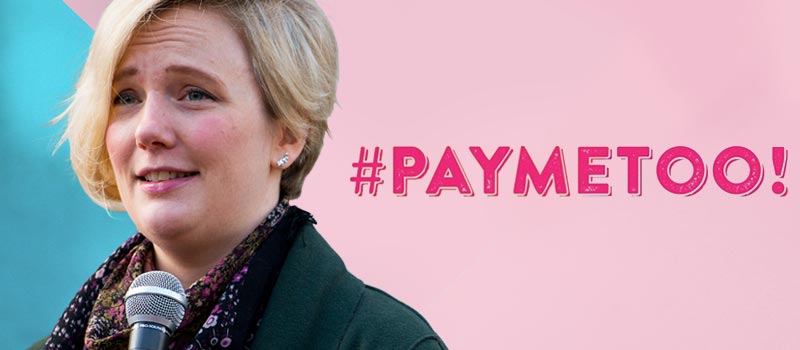The #PayMeToo Campaign
Tremendous progress has been made to get women into the workplace. Unlike in the past when men dominated the workplace, and some jobs were traditionally considered to be men’s, women have, today, made inroads in the labor market and contribute as much as men do, in the same careers. Ladies have, over the years, been greatly encouraged and empowered to achieve what men have done in different areas. A lot of them now have the highest standards of education and hold important offices in politics and business. However, despite this notable progress, there is still a huge gap between men and women when it comes to salaries. Men continue to be paid higher wages than women despite both of them having the same qualifications, performing the same tasks, and making equal contributions. The #PayMeToo Campaign, led by Stella Creasy, the Walthamstow’s Labor MP, aims to offer support to women in agitating for the ending of the gender pay gap in companies.
The campaign began a few days ago, and it has already gained unprecedented momentum in lobbying for the ending of the gender pay gap in the UK. On April 2nd, 2018, a group of female MPs led Stella Creasy launched the #PayMeToo campaign to encourage fellow women to hold their employers accountable as they deal with the gender pay gap. Women are working just like men, only that they are paid cheaply, and this is only being put to the public now. Mandatory reporting has been introduced to force companies to publish details of their gender pay gap. Several companies have since released the figures for their gender pay gap, and most of them show a considerable difference between men’s and women’ pay. In a tweet posted on her Twitter page, Stella Creasy states that 78% of companies in the UK pay men more than women. On average, women earn 14% percent less than their male counterparts. A few companies, 13% of them, however, on average, pay their female employees more than their male workers while only 8% have no gender pay gap.
The campaign has gained a lot of support both from women and men in the UK. However, there has also been an equally strong backlash from various quarters, which claim that the gender pay gap does not exist. For instance, on the day of the deadline for companies to provide details of their gender pay gap details, one commentator invited by BBC Radio 4 to discuss the issue claimed there is no gender pay gap. He also claimed that women lack the skills to be top executives and do not work the same long hours as men do. Accordingly, the data provided is meaningless and mere opinion. Another Twitter user replying to Creasy’s post claimed that women choose to work in low-paying careers and put in fewer hours at work. However, all these claims are not supported by any evidence and to purport to the gender pay gap does not exist is to cover one’s eyes from seeing the truth.
Gender pay gap is not only an issue in the United Kingdom. It is something which is experienced almost everywhere in the world. Women have always been undervalued, and if nothing is to be done about it, the discrimination is never going to end. The #PayMeToo campaign is setting good precedence for women and agitators all over the world. Its success will be a huge and important step towards ending the pay disparity in the UK. With the zeal with which the campaign is being carried out and the support it has and is bound to receive it is most likely going to be a success.







